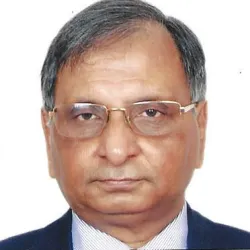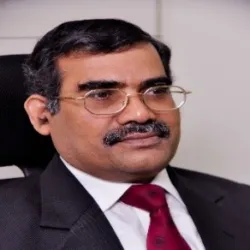Suptech: Disruptive Technologies in Reporting, Regulation and Supervision - main page Q3
Suptech: Disruptive Technologies in Reporting, Regulation and Supervision
Suptech: Disruptive Technologies in Reporting, Regulation and Supervision
September 27 – 30
Chair: Klaus Löber, chair of the CCP supervisory committee at European Securities and Markets Authority (ESMA)
In 2021, disruptive technological innovation continues to transform financial systems whilst Covid-19 brings new threats to the regulatory and supervisory regimes that protect financial systems. Cryptocurrencies are forcing regulators and supervisors to take sides, cyber threats bring new dimensions to systemic risk, and digitalisation is generating revolutionary platforms for financial crime and fraud.
Proactive application of advanced technologies like machine learning or DLT also opens up unprecedented regulatory and supervisory possibilities. Regtech and suptech offer new tools and frameworks to accelerate risk-based reporting, monitor systemic risk as well as supervise financial institutions based on Big Data. Increasingly, central bankers recognise that in order to make the most of these emerging opportunities, significant change is needed: at methodological, technical and institutional levels.
This course, ‘Suptech: Disruptive Technologies in Reporting, Regulation and Supervision’ is designed to equip delegates with the tools to meet these current challenges facing central bankers, regulators and supervisors with an active interest in regulatory and supervisory technology.
Each day will feature three hours of expert-led live content to maximise the opportunity to share and learn. The course chair will ensure participants have opportunities to network throughout the programme.
Timings: 8am-12pm (ET) | 1pm-5pm (BST) | 8pm-12am (SGT)
Course agenda
Two weeks prior to your training course you will be emailed access to our content hub with course materials, including a trial to Central Banking if you are not already subscribed. There will be a combination of articles, reports and presentations that will contribute to two hours of preparation time for the live content. Presentations for the sessions will also be held here subject to the speaker approval.
Foundations for Risk Management in Regtech and Suptech
13:00 – 13:15
Course introduction
Course introduction session led by the chair
13:00 - 13:15
- Introductions and welcome from the chairperson
- Overview of the training course
- Discussion of the delegate expectations
Klaus Löber is the Chair of the CCP Supervisory Committee (CCP SC) in ESMA, which was established in 2020. His areas of responsibility encompass the tasks attributed by the European Market Infrastructure Regulation (EMIR) to the CCP SC, in particular the enhanced supervisory convergence towards EU CCPs and ensuring a resilient CCP landscape in the EU as well the monitoring and supervision of CCPs established in third countries in view of the risks that they may pose to the EU financial system. He is also chairing the ESMA CCP Policy Committee contributing to the EU Single Rule Book in the area of CCPs.
Prior to this role, Mr Löber was the Head of the Oversight Division of the European Central Bank in charge of the oversight of financial market infrastructures, payments instruments and schemes. Earlier positions include the Head of the Secretariat of the Committee on Payments and Market Infrastructures, the global standard setting body in the area of payments, clearing and settlement as well as positions in the European Commission, Deutsche Bundesbank and private practice.
Mr Löber regularly publishes on financial markets legal, regulatory and infrastructure issues and lectures at universities.
13:15 – 14:15
Overview of the foundations of regtech and suptech
06:15 - 07:15
- Evolutionary journey of financial, regulatory, and supervisory technology
- How has regtech and suptech impacted the financial services industry?
- Identifying key technologies in the areas of DLT, big data analytics, machine learning and cloud computing
- Examples of applications in regulatory reporting and compliance risk management
Douglas W. Arner is the Kerry Holdings Professor in Law, RGC Senior Fellow in Digital Finance and Sustainable Development and Associate Director of the HKU-Standard Chartered Foundation FinTech Academy at the University of Hong Kong. In addition, he is Associate Dean (Taught Postgraduate and Development) of the Faculty of Law at HKU and co-founder and former Director of HKU’s Asian Institute of International Financial Law, as well as Faculty Director and co-founder of the LLM in Compliance and Regulation, the LLM in Corporate and Financial Law, the Law, Innovation, Technology and Entrepreneurship (LITE), and the East Asian International Economic Law and Policy Programmes. Douglas served as Head of the HKU Department of Law from 2011-2014, as Director of the Duke University-HKU Asia America Institute in Transnational Law from 2005-2016, and as an inaugural member of the Hong Kong Financial Services Development Council from 2013-2019. He is a Visiting Professor and Senior Visiting Fellow of Melbourne Law School of the University of Melbourne, a Visiting Professorial Fellow of the Faculty of Law of UNSW Sydney, a non-executive director of NASDAQ and Euronext listed biotechnology firm Aptorum Group, an Advisory Board Member of the Global Impact FinTech (GIFT) Forum, Policy 4.0 and of the Centre for Finance, Technology and Entrepreneurship (CFTE), and co-founder and an executive board member of the Asia Pacific Structured Finance Association. In 2020 he was awarded an inaugural Hong Kong Research Grants Council Senior Fellowship to study the role of digital finance in financial inclusion and the UN Sustainable Development Goals. Douglas has published eighteen books and more than 200 articles, chapters and reports on international financial law and regulation, including most recently Reconceptualising Global Finance and its Regulation (Cambridge 2016) (with Ross Buckley and Emilios Avgouleas) and The RegTech Book (Wiley 2019 (Janos Barberis and Ross Buckley). His recent papers are available on SSRN at https://papers.ssrn.com/sol3/cf_dev/AbsByAuth.cfm?per_id=524849 , where he is among the top 50 authors in the world by total downloads, as well as among the top 15 law authors. Douglas led the development of Introduction to FinTech – launched with edX in May 2018 and now with over 100,000 learners spanning almost every country in the world – and the foundation of the edx-HKU Online Professional Certificate in FinTech. In addition, he has served as a consultant with, among others, the World Bank, Asian Development Bank, UN, APEC, Alliance for Financial Inclusion, and European Bank for Reconstruction and Development. He has lectured, co-organised conferences and seminars and been involved with financial sector reform projects around the world. Douglas has been a visiting professor or fellow at Duke, Harvard, the Hong Kong Institute for Monetary Research, IDC Herzliya, McGill, Melbourne, National University of Singapore, University of New South Wales, Shanghai University of Finance and Economics, and Zurich, among others.
14:15 – 14:30
Break
07:15 - 07:30
14:30 – 15:30
Fintech and financial stability: implications and opportunities
06:00 - 07:00
- Overview of key fintech applications
- Key characteristics of effective frameworks for supervision of technological innovation
- Implications and opportunities for central banks and their institutional organisation
- Cooperation and coordination with the private sector
- Case study: Ant Finance
Herbert Poenisch
Former senior economist, BIS, and senior fellow, Academy for Internet Finance, Zhejiang University
Former Bank for International Settlements
Basic info: Austrian citizen, resident in Penang, Malaysia and Houlgate, France
Education: University of Linz, Austria (PhD) and Oxford University, UK (MLitt)
Present position: retired from Bank for International Settlements, Senior Fellow, Academy for Internet Finance, Hangzhou and member of International Committee at International Monetary Institute, Beijing (2016- present)
Former Positions: Advisor to SEACEN and BNM (2010-2016)
Senior Economist, Monetary and Economic Department, BIS (1990 -2010). Seconded to IMF
Economist at Austrian National Bank (1977-1990). Seconded to IMF, OECD, ADB, BIS
Publications: see LinkedIn herbert.poenisch
15:30 – 16:00
16:00 – 17:00
Outsourcing technology and managing potential risk
08:45 - 09:45
- Identifying areas of outsourcing and related risks and concerns
- Specific cloud service observations
- How can exposure to these risks leave central banks vulnerable when acting as overseers/supervisors?
- Requirements to resiliency and business continuity plans to prepare and manage these risks
Patrick Papsdorf is Head of Section of Payments Oversight in the Directorate General Payments and Market Infrastructure (DG-MIP) at the European Central Bank (ECB). His area of responsibility comprises the oversight of payment systems and schemes, and encompasses the assessment of emerging risks and developments in the payments ecosystem, including aspects cyber resilience and financial innovation. Prior to this, Mr Papsdorf was Adviser to DG-MIP's Market Infrastructure Management Division, where he was in charge of analytical and compliance matters, and contributed to the operations and development of key market infrastructures.
Earlier positions include a commercial bank, the Deutsche Bundesbank and the Federal Reserve Bank of New York. Mr Papsdorf holds the German recognition as bank officer, a bachelor's degree in business management from the University of the Deutsche Bundesbank and a master in global management.
Tools and Frameworks
13:00 – 14:00
Regtech and suptech for digital money
06:00 - 07:00
- Introduction to the world of privately issued cryptocurrencies
- Outline of a central bank’s place within this landscape
- Evaluation of wholesale and retail digital currencies, and their suitability for central banks to issue
- Discussion of the importance of cash and whether central bank digital currency can be a complement or replacement of cash
Herbert Poenisch
Former senior economist, BIS, and senior fellow, Academy for Internet Finance, Zhejiang University
Former Bank for International Settlements
Basic info: Austrian citizen, resident in Penang, Malaysia and Houlgate, France
Education: University of Linz, Austria (PhD) and Oxford University, UK (MLitt)
Present position: retired from Bank for International Settlements, Senior Fellow, Academy for Internet Finance, Hangzhou and member of International Committee at International Monetary Institute, Beijing (2016- present)
Former Positions: Advisor to SEACEN and BNM (2010-2016)
Senior Economist, Monetary and Economic Department, BIS (1990 -2010). Seconded to IMF
Economist at Austrian National Bank (1977-1990). Seconded to IMF, OECD, ADB, BIS
Publications: see LinkedIn herbert.poenisch
14:00 – 14:15
Break
07:00 - 07:15
14:15 – 15:15
Fintech and innovation: sandboxes, incubators and accelerators
07:15 - 08:15
- Sandboxes, incubators and accelerators: a central bankers guide
- Role and functions in innovation strategies
- Tips for helping innovation comply with legal and regulatory requirements
- Issues for funding resourcing cross-jurisdictional cooperation
Brian Knight
Senior research fellow and director of innovation and governance
George Mason University
Brian Knight is the director of the Program on Financial Regulation and a senior research fellow at the Mercatus Center at George Mason University. His research focuses on numerous aspects of financial regulation, including the creation of pro-innovation regulatory environments and the role of federalism in fintech regulation. Prior to joining Mercatus, he worked for the Milken Institute, where he headed up the FinTech and Capital Access programs. Mr. Knight also has experience working for a broker-dealer with a focus on the emerging online private-placement market and was the co-founder of CrowdCheck, a company providing due-diligence and disclosure services to companies and intermediaries engaged in online private offerings. Mr. Knight received his Law degree from the University of Virginia and his bachelor’s degree from the College of William and Mary.
15:15 – 15:30
Break
15:15 - 15:45
15:30 – 16:30
Utilising software platforms and APIs in risk-based reporting
08:30 - 09:30
- What key features are necessary for effective risk-based supervision frameworks and strategies?
- The impact of APIs (Application Programming Interface) and software platforms on regulatory value chain
- Roles of machine learning, DLT and cloud in market surveillance and risk prediction
- Best practice for effective management in security standards and confidentiality when dealing with sensitive topics and material
Project manager of Risk-based Supervision Model Implementation into the Supervisory Activities project;
Under my leadership, an e-Licensing tool was developed, which allows FIs to submit applications electronically and allows automated application evaluation by including the necessary expertise and information on issued licenses to be submitted to the LIS system of the Center of Registers and the Lietuvos bankas website.
Under my leadership, the Supervision Service information system ProTas was developed and implemented. IT tools supporting business processes were implemented: the Register of Sanctions, the Register of Inspections, the Register of Consumer Disputes and Complaints and tools to support settlement process, dispute submission via electronic channels.
Head of Risk Modelling Division, 2012–2015
Quantitative models of selection and risk assessment were implemented.
INSURANCE SUPERVISORY COMMISSION OF THE REPUBLIC OF LITHUANIA
Deputy Chair, 2008–2012
At the same time – European Insurance and Occupational Pensions Authority (EIOPA) (Member of Board of Supervisors; Financial Stability Committee; Information Technology and Data Committee); European Systemic Risk Board (ESRB) (General Board; Special Advisory Committee); Nordic-Baltic Stability Group (NBSG).
Head of Information Analysis, 2006–2008
Actuary, 2004–2006
Regulation, Ethics and Evolving Challenges in Fintech
13:00 – 14:00
Suptech for AML and anti-fraud
07:15 - 08:15
- Recent financial crime trends
- Synergies between AML efforts and cyber security
- Machine learning for anomaly detection
- Multi-source network analysis
Olivier Kraft is FNA’s Director of FinCrime Analytics, helping clients enhance their response to complex financial crime threats. Prior to joining FNA, Olivier contributed to global efforts against corruption and money laundering across the public, financial and non-profit sectors.
Until September 2020, Olivier was a manager in HSBC’s Financial Crime Threat Mitigation (FCTM) department, where he led the Bank’s strategic intelligence on virtual assets and other new payment methods. Olivier was previously involved in intergovernmental efforts against financial crime, including at the Financial Action Task Force (FATF), the United Nations Office on Drugs and Crime, and the World Bank Group.
Olivier holds a Master’s degree in Law from the University Paris 1 Panthéon-Sorbonne, and an MSc in Computational Statistics and Machine Learning from UCL. He is an Associate Fellow at the Centre for Financial Crime and Security Studies of the Royal United Services Institute, and an independent AML consultant for the International Monetary Fund.
14:00 – 14:15
Break
07:00 - 07:15
14:15 – 15:15
Bigtech in fintech: the new focus of regulatory attention
07:15 - 08:15
- Defining the features of the bigtech sector and entities
- How has bigtech impacted financial services and technology providers?
- Outline of local and cross-jurisdictional efforts focused on regulation and supervision of bigtech
- Discussion: who are the bigtechs in the delegates’ home jurisdictions?
Anand Sinha joined the Reserve Bank of India (RBI) in July 1976 and became deputy governor in January 2011. He was adviser in RBI up to April 2014 after demitting the office of deputy governor in RBI on January 18, 2014. As deputy governor, he was in charge of regulation of commercial banks, non-banking financial companies, urban cooperative banks and information technology, among others. He has represented the RBI in various Committees/Groups of the Bank for International Settlements (BIS), was on the G20 Working Group on Enhancing Sound Regulation & Strengthening Transparency and also a board member of the Securities and Exchange Board of India. He holds master’s degree in physics from the Indian Institute of Technology, New Delhi.
15:15 – 15:30
Break
15:15 - 15:30
15:30 – 16:30
The focus on regulating fintech
08:30 - 09:30
- Overview of policies and approaches to regulation and supervision of fintech
- Balancing the support for innovation with consumer protection: examples of strategies, frameworks and indicators used
- Implications for resourcing and institutional organisation of central banks and regulators
- Discussion: successes and challenges from the delegates’ home jurisdictions
Abhaya Prasad Hota, - former Head of Payment Systems in Reserve Bank of India is known for his valuable contribution in design and development of payment system in India. After his central banking experience for 27 years mostly in the area of payments and technology, he headed the umbrella retail payments institution named National Payments Corporation of India (NPCI) during 2009-2017 as its founding CEO. NPCI today handles 10 out of 13 types of retail payment systems in the country accounting for almost 80 percent of all inter-bank retail payment transactions. He played the key role in building the real time 24x7 retail money transfer system ( handling 110 million transactions a day), domestic card payment system (the largest in the country in terms of number of cards issued in the country) and identity based Direct Benefit Transfer system ( all government subsidies for social welfare programs passing through this DBT system).
Currently he serves as an Independent Director in the Boards of a few organisations in the area of banking and finance and speaks at various fora on design and development of national level payment system. During the year 2018-19, he was also in the World Bank Panel of Experts on Payment Systems.
Effective Application for Regtech and Suptech
13:00 – 14:00
Application of suptech in systematically important financial institutions
07:30 - 08:30
- Overview of the D-SIB (domestically systemically important) and G-SIB (global systemically important) frameworks
- Practical examples of the application of regtech and suptech for D-SIB and G-SIB identification and continuous oversight
- What are the implications of cooperation between the regulator and the regulated?
- Mitigating the challenges of cross-jurisdiction communication and coordination for effective supervision
14:00 – 14:15
Break
07:00 - 07:15
14:15 – 15:15
Regulating online lending: China’s P2P case study
06:00 - 07:00
- Overview of tight vs light regulation of P2P platforms
- Issues related to separation of information intermediation from financial intermediation in P2P
- Classification of P2P like a bank or an investment fund
- Implications for credit risk analysis
Herbert Poenisch
Former senior economist, BIS, and senior fellow, Academy for Internet Finance, Zhejiang University
Former Bank for International Settlements
Basic info: Austrian citizen, resident in Penang, Malaysia and Houlgate, France
Education: University of Linz, Austria (PhD) and Oxford University, UK (MLitt)
Present position: retired from Bank for International Settlements, Senior Fellow, Academy for Internet Finance, Hangzhou and member of International Committee at International Monetary Institute, Beijing (2016- present)
Former Positions: Advisor to SEACEN and BNM (2010-2016)
Senior Economist, Monetary and Economic Department, BIS (1990 -2010). Seconded to IMF
Economist at Austrian National Bank (1977-1990). Seconded to IMF, OECD, ADB, BIS
Publications: see LinkedIn herbert.poenisch
15:15 – 15:45
15:45 – 16:15
Closing remarks and delegate action plans
Concluding session led by the chair
08:30 - 09:00
- Summary of the course
- Discussion of the observed trends and case studies
- Application of learning points in the delegates’ home organisations
- Preparation of action points
Klaus Löber is the Chair of the CCP Supervisory Committee (CCP SC) in ESMA, which was established in 2020. His areas of responsibility encompass the tasks attributed by the European Market Infrastructure Regulation (EMIR) to the CCP SC, in particular the enhanced supervisory convergence towards EU CCPs and ensuring a resilient CCP landscape in the EU as well the monitoring and supervision of CCPs established in third countries in view of the risks that they may pose to the EU financial system. He is also chairing the ESMA CCP Policy Committee contributing to the EU Single Rule Book in the area of CCPs.
Prior to this role, Mr Löber was the Head of the Oversight Division of the European Central Bank in charge of the oversight of financial market infrastructures, payments instruments and schemes. Earlier positions include the Head of the Secretariat of the Committee on Payments and Market Infrastructures, the global standard setting body in the area of payments, clearing and settlement as well as positions in the European Commission, Deutsche Bundesbank and private practice.
Mr Löber regularly publishes on financial markets legal, regulatory and infrastructure issues and lectures at universities.
16:15 – 16:30
Feedback forum
We will send a link in this session to the feedback form and would kindly ask that you help us improve the training product by completing the survey. We would also welcome any verbal feedback in this session.
09:00 - 09:15
Date: October 22
The Implementation Workshop is a chair-led forum where attendees will have the opportunity to discuss challenges around implementing the ideas they have learnt during the Live Content. Prior to the workshop you will be emailed questions to prepare in order to gain the most from the session with peers.
13:30 – 14:30
Implementation Workshop
11:00 - 12:00
Benefits of attending the Implementation Workshop:
- Developments in the area since the live content sessions, including new resource material
- Questions arising since returning to the central bank
- Challenges of implementation: where are the roadblocks?
- Medium-term goals: what is realistic?
- Establishment of group network to keep in touch with peers and share best practices
Learning outcomes
By the end of the training course, participants will be able to:
- Understand the foundations of regtech and suptech and how they are impacting central banks and financial services
- Create actions to mitigate the challenges of suptech for effective supervision
- Manage potential risks of outsourcing technology
- Understand the role of central banks in the digital money landscape
- Create a framework for managing challenges of regulating fintech and the use of big data
Chair

Klaus Löber
Chair, CCP supervisory committee
European Securities and Markets Authority (ESMA)
Klaus Löber is the Chair of the CCP Supervisory Committee (CCP SC) in ESMA, which was established in 2020. His areas of responsibility encompass the tasks attributed by the European Market Infrastructure Regulation (EMIR) to the CCP SC, in particular the enhanced supervisory convergence towards EU CCPs and ensuring a resilient CCP landscape in the EU as well the monitoring and supervision of CCPs established in third countries in view of the risks that they may pose to the EU financial system. He is also chairing the ESMA CCP Policy Committee contributing to the EU Single Rule Book in the area of CCPs.
Prior to this role, Mr Löber was the Head of the Oversight Division of the European Central Bank in charge of the oversight of financial market infrastructures, payments instruments and schemes. Earlier positions include the Head of the Secretariat of the Committee on Payments and Market Infrastructures, the global standard setting body in the area of payments, clearing and settlement as well as positions in the European Commission, Deutsche Bundesbank and private practice.
Mr Löber regularly publishes on financial markets legal, regulatory and infrastructure issues and lectures at universities.







